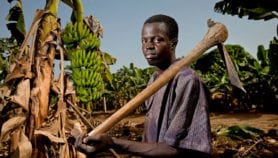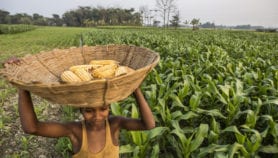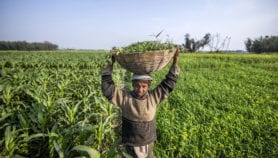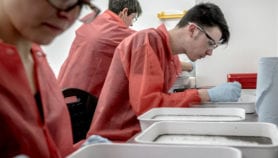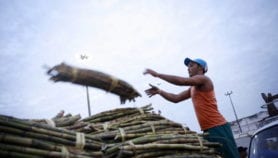By: T.V. Padma
Send to a friend
The details you provide on this page will not be used to send unsolicited email, and will not be sold to a 3rd party. See privacy policy.
[NEW DELHI] India and the United States are to set up a formal framework for research collaboration in agricultural biotechnology.
The agreement, which was finalised last week at the Indian Department of Biotechnology (DBT), will focus on soil salinity, drought and nutritional improvement – traits that are controlled by several genes, making genetic improvement through conventional breeding difficult.
Under the agreement, the DBT and the US Agency for International Development (USAID) will provide an umbrella structure for consortium-based partnerships engaged in areas such as policy planning, research and development, and capacity building.
The two countries also agreed to promote public-private partnerships to set up common research facilities, to carry out detailed studies in functional genomics, and to identify research projects. Details of funding, time schedules and collaborators are yet to be announced.
The collaboration will be part of a US Strategy to boost food security, economic growth, nutrition and environmental quality in Africa and Asia. Under the agreement, India will remain free to follow, change or amend its guidelines on biosafety and intellectual property rights, in line with national legislation.
The initiative will in particular address India’s high level of nutritional deficiency in children under five – half of Indian children in this age group are malnourished or stunted in growth, and 80 per cent of pregnant Indian women are anaemic.
India’s crop production is severely hampered by problems such as drought and floods and infertile or salty soils. It ranks second in the world, after the United States, in terms of its area of arable land, but ranks 17th in production of wheat, 26th in rice, 27th in maize and 41th in pulses.
Indian officials say that although there is a history of collaboration between institutes and universities from the two countries on crop biotechnology, this is the first time a formal long-term collaboration between the two countries has been agreed.






